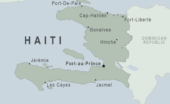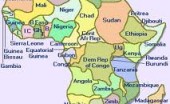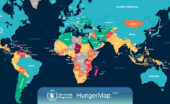Re Ian Bremmer 'Could third-party candidates upend the 2024 US election?' 3 April The current political movement in the USA…
Wednesday Night #1571
Written by Diana Thebaud Nicholson // April 11, 2012 // Canada, Reports // Comments Off on Wednesday Night #1571
Sam Stein, who has been working on airport development in Mali for several years and has traveled through the country (in search of the wonderful cloth-dying techniques of the Malian women), gave a wonderfully thorough and informed view of recent events in Mali
First – why should we care?
We should care because the forceful overthrow of a peaceful and non-repressive government cannot be justified under any circumstances – elections were scheduled to take place barely a month after the coup took place.
We should care because, if left unresolved, the situation could result in the creation of a safe haven for terrorist groups and lead to further instability in the entire West African region, which is already precarious with groups such as Boko Haram in Nigeria and others.
Second – what’s it all about?
The crisis in Mali is really two inter-related crises: In the South, it is a crisis of confidence in the ability of the government and the older generation of political leaders to manage the country effectively. In the North, it is a crisis about the control and identity of a vast and remote territory the size of France and Belgium combined and located for the most part in the Sahara Desert.
The two are inter-related in the sense that the crisis in the South would not have come to head had the crisis in the North not reached a tipping point as an unintended consequence of what seemed like a good idea at the time, i.e. getting rid of Moammar Ghaddafi. As in Iraq, the weapons and thugs employed by the former dictatorial regime simply ended up going somewhere else to cause mischief; in this case giving the Tuareg rebels and other groups an advantage over the Malian army. Although the Tuareg rebellion has a long history – dating from the very founding of the State of Mali in 1961 – they had never been able to mount much of a serious threat to the central Government. The change in the balance of power in the North as a result of the return to Malian territory of the former mercenaries and their weaponry is what provoked the coup d’état in the South.
The Malian army contingents charged with defending the Northern regions were overrun starting in January by heavily armed and experienced fighters and a number of massacres took place – most notably at the remote town of Aguelhoc near the Algerian border, where scores of Malian soldiers were beheaded after capture and displayed in photographs circulated by the rebels. Refugees from the Northern Departments of Kidal, Timbuktu and Gao started fleeing to the south and to the neighboring countries.
Worse, it soon became apparent that the original Tuareg independentist rebel group – the MNLA (Mouvement National pour la Libération de l’Azawad) – had been joined by two others: Ançar Dine, a Salafist group intent on establishing Sharia law and Al Qaeda in the Islamic Maghreb (AQMI according to its French acronym). At this point the rebels now appear to control the entire North of the country, including the key towns of Kidal, Timbuktu and Gao. The good (?) news is that there is no love lost among the various rebel factions: the MNLA is a secular organization that seeks independence for the “Azawad” – the ancestral territory of the Tuareg people (or Kel Tamasheq as they prefer to be called); Ançar Dine seeks to impose Sharia throughout the entire territory of Mali rather than simply the “liberation” of the Azawad per se; finally, AQMI seeks to establish a safe haven for the activities of its Al Qaeda project. In addition, a number of simple criminal gangs and drug smugglers have joined the fray in the no-man’s-land of the North.
The reaction in the South began with riots earlier this year, following the military defeats and massacres in the fight against the rebels in the North, and accusations that the government was not doing enough to support the troops due to corruption and ineptitude – much of which are probably true. Unfortunately these warnings were not heeded and the military and political class had nothing concrete to offer the traumatized and dissatisfied members of the armed forces and their civilian sympathizers.
The former President Amadou Toumani Touré (ATT) had the enviable reputation of a soldier who gave up power peacefully following a coup in 1991 and did not participate in the subsequent elections. He only eventually assumed the Presidency after his predecessor Alpha Oumar Konaré had served two terms and then only through democratic elections in 2002 and again in 2007. He had declined to seek a third mandate, in accordance with the Malian Constitution. That said, although he was a fairly popular president and certainly not an oppressive dictator, he is accused by the coup leaders and others of “softness” regarding the rebels and the Tuareg in general and of toleration with respect to corruption, favoritism and unfairness in the administration. My own experience in dealing with the government revealed not so much a case of flagrant corruption; rather an inability to make decisions and a generalized paralysis and passivity on the part of the administration as those responsible waited for direction from the political level.
It appears that the parties have found a resolution for the time being: ATT has resigned, the President of the National Assembly will assume the Presidency of the country for a transitional period of 21-40 days in accordance with the Malian constitution and elections will take place thereafter, although there remains some difference of opinion over the date and the composition of the interim government.
Of course, the situation in the North is still far from resolved. I don’t think the rebels have much incentive for now to give up their gains – certainly not without something to show for their military success. We should bear in mind that the conflict between the Tuareg and the other populations of Mali goes back centuries – if not millennia. The Tuareg have lived in this inhospitable land since Roman times and have developed a tough and resilient nomadic way of life adapted to the desert environment; they are not going anywhere. Over the centuries, they have advanced and retreated, advanced and retreated many times in relation to the sedentary areas and populations living along the Niger River; this is but the latest iteration. Some of the Tuareg simply do not accept the legitimacy of the occupation of their territory by the states of Mali, Niger, Algeria, Burkina Faso and Mauritania, which they claim was imposed on them by the colonial powers (primarily France) without their consent.
In any event, the Malian army by itself will not be able to dislodge them from their territorial gains without help from outside forces. The regional organization ECOWAS has already indicated interest in helping out, as has France (always ready, willing and able to meddle in African adventures) and the US (I have seen a fleet of V-22 Osprey aircraft at Bamako airport). And I suspect that promises of this support – and the threat of continued sanctions – was critical in getting the junta to agree to hand power back to the civilians. Given the number of conflicts taking place elsewhere in the world, it’s not obvious that military intervention by France and the US would be feasible politically; the only justification would be to destroy potential Al Qaeda bases. I can foresee a resolution somewhat along the lines of the relationship between Iraq and Kurdistan, with a great deal of autonomy devolving to the Tuarag in the “Azawad”, provided that the MNLA commits to going after AQIM.
One of the real (unreported) dangers is the risk of some very nasty reprisals and pogroms against the non-rebel Tuareg living in Bamako and elsewhere in the country as a result of frustration and lack of public order. They have already been accused of sympathy with the rebels, disloyalty, etc. Friends of mine have already had to provide shelter to some of these and help to spirit them out of Mali.
+++++++++++++++++++++
The Prologue
Sam Stein will be with us to talk about the recent events in Mali and what they may foretell for neighbouring African nations. If you are not up-to-date on events in Mali, we suggest you see Al Jazeera’s coverage including the Explainer “Tuareg-led rebellion in north Mali” which will enlighten you regarding the aspirations of the National Movement for the Liberation of Azawad (MNLA). Meantime, the latest news is that Mali’s president stepped down as part of a deal that will transfer power from coup leaders to the parliamentary speaker. It is too long since we have discussed Africa in terms other than drought, starvation and human misery. It is time to look at the political issues, whether there are possible positive developments going forward, and in which countries.
Coincidentally, the Sauvé Scholars will be honouring Flora Terah, Kenyan Parliamentary candidate (2007) and women’s advocate, who is returning to Kenya to wage her campaign in the next election in 2012 or 2013 (the PM favours the former, while the electoral commission has ruled for the later date). Our thoughts and best wishes go with Flora.
Happiness indices, according to the Economist, are popping up all over the place and offer a new field for economists to measure. This could be a worthy– or at least, less dismal – alternative to the debate over austerity (which makes nobody happy). On the austerity front, a couple of articles are of note:
Austerity vs solidarity: Democratic legitimacy and Europe’s future
German sociologist and influential European thinker Ulrich Beck recently highlighted that one of the most (problematic) prevailing contemporary tendencies is to elevate Germany’s “culture of stability” to “Europe’s guiding idea”. While it is necessary that some states take a more conscious and strict approach towards spending, national finances and public debts, this submission to a peculiar form of German Europeanism risks not solving all EU problems, while supranational institutions and democracy are fully bypassed.
And on the U.S. domestic front
Paul Krugman’s Not Enough Inflation
The aftermath of Canada’s federal budget continues, but is dwarfed by the F-35 debate and blame game. We remain in awe (although not admiration) of the Harper government’s ability to stay on message even when the message has little if anything to do with the topic. Perhaps the most outraged – and detailed – view is that of Andrew Coyne: Peeling back the layers of misconduct in the F-35 fiasco
Margaret Lefebvre has forwarded the link to: Rushing women onto boards is risky business, study says” from the Globe & Mail:
“A recent study released by the German central bank found that risk taking within the banking industry increases with more women on an executive board. The same goes for younger executives. In contrast, men who are graying at the temples and executives with Ph.D. degrees reduce the level of risk.”
Margaret suggests that this brings us right back to the issue of whether or not we can use evidence-based scientific information as the basis on which to build public policy.
The article continues, “So why do more women add up to greater risk? The theory is that women have less experience in the top leadership positions at a company. The study also mentions that the addition of a member from a different background, i.e. not one of the boys, leads to greater diversity and can in turn boost conflict and hold back decision making.”
As we grit our teeth, we wouldn’t dream of suggesting that such diversity might lead to far better decisions, but will add to the pot the (far more intelligent) musings of Mohamed el-Elerian prompted by the IBM/Master’s controversy and leading to the issue of World Bank Leadership.
Finally, two items dominate the news. We might term them Titan and Titanic. The Titan, is of course, Mike Wallace, whose death is seen as the end of a certain form of crusading journalism through devastating interviews.
The second is the phenomenal amount of hoopla surrounding the 100th anniversary of the sinking of the Titanic. With all respect to our friend Alan Hustak, we are confounded by the celebration of the tragic event, seemingly caused by the hubris of a handful of individuals (Ismay et al.), although there appear to be new findings concerning atmospheric conditions causing optical illusions (“Did the Titanic sink because of an optical illusion?”). In any event, we are struck by the difference in the treatment accorded to the Titanic and the Lusitania, also fraught with errors; but perhaps over the three years leading up to May 6th 2015, there will be similar, somewhat ghoulish celebrations.
For those who missed it, we warmly recommend the CBC Doc Zone “Titanic: The Canadian Story”, based on Alan’s book and with Alan as a most engaging guide to the story.



